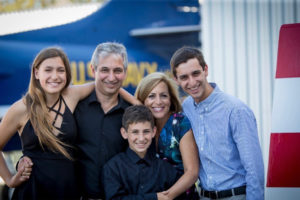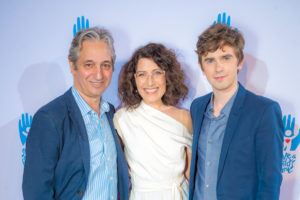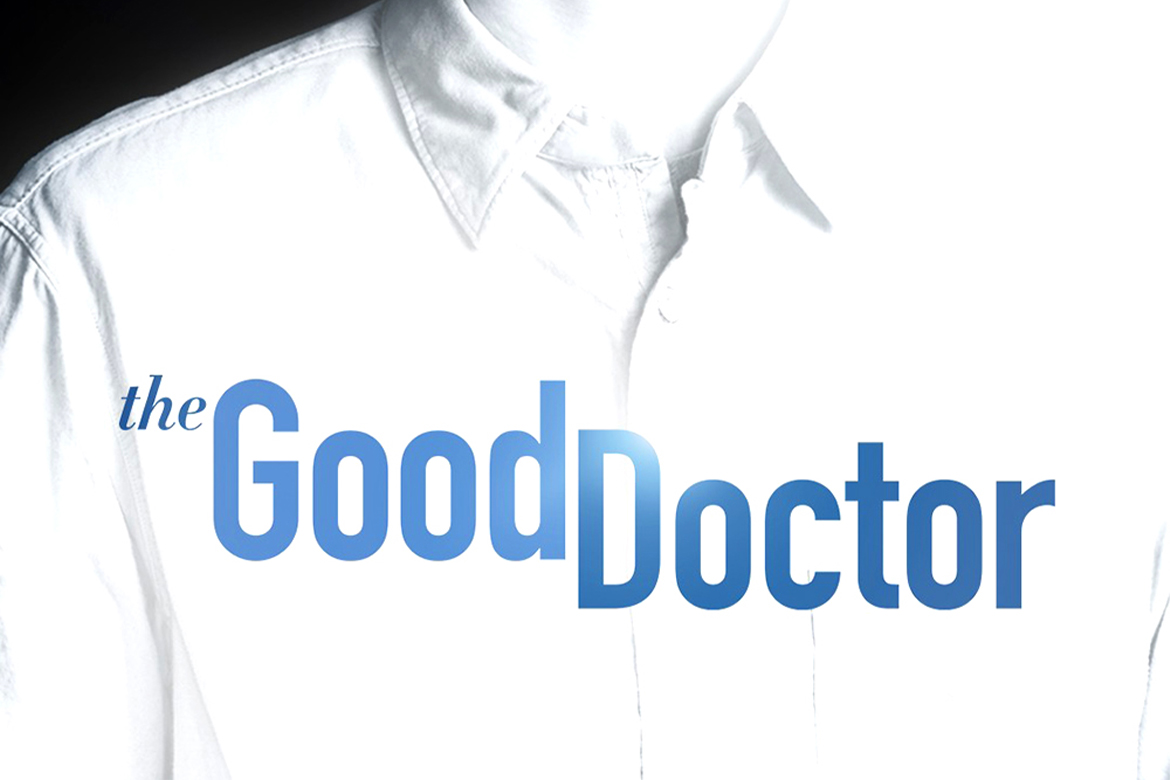David Shore’s hit television series House, starring Hugh Laurie, enters the Guinness book as the world’s most-watched series * His latest series, The Good Doctor, is nominated for the Golden Globe Award * An exclusive interview with Canadian-Jewish lawyer who one day decided to move to Hollywood then and did it, big time
For many decades, Hollywood’s film and television industry has been home to a number of Jewish producers, creators, and managers. If there’s one Jewish figure to take the spotlight, it’s David Shore—the icon behind the successful hit series, Family Law, NYPD Blue, and House. Shore’s creation of House led to his ultimate recognition as one of the most influential screenwriters and producers in the industry.
Born in London, Ontario, a bustling Canadian city located in the Southwestern part of Ontario, David Shore is the oldest amongst his two twin brothers—Ephraim and Raphael. Though his academic background was in legal studies and for many years he lived, breathed, and worked as a practicing Lawyer, the writer within him sought to unleash. With a sudden urgency and desire for fulfillment, Shore packed all of his belongings and moved to Los Angeles to write, rather than become yet another wealthy and prosperous Jewish lawyer statistic. I could not help but identify with a man who left his homeland and moved to a foreign country in mid-life, to fulfill his dream of writing.

David Shore and his family
If there’s one television hit to make headlines and enter the Guinness book as the world’s most watched series, its David Shore’s House, starring British actor Hugh Laurie as doctor Gregory House—a genius doctor at a hospital in New Jersey who invents controversial methods of treatment tackling various health mysteries—leading to his many confrontations with the hospital staff. Shore’s breakthrough occurred in the wake of the House series, which was aired on the Internet and on television screens all over the U.S. for eight years from the mid-2000’s. House won enthusiastic reviews and high ratings, and was selected as one of the ten programs that have been screened for several years and won numerous awards—including two Golden Globes and four Emmy Awards.
These days, Shore’s The Good Doctor is screening on television sets across the nation and is receiving exceptional reviews. The series is also scheduled to be screened in Israel next month. The Good Doctor, starring Freddie Highmore as Shaun Murphy, is about a young doctor who is diagnosed with Savant syndrome and is faced with the challenges of coping with his medical condition while performing as a surgeon at the hospital. Highmore’s prominent role in the series led to him receiving a Golden Globe.
On Sunday morning, I ventured down the highway leading to Pacific Palisades, where Shore lives in a beautiful and spacious house overlooking the Pacific Ocean, with his wife Judy and their three children. His wife welcomes me in for a short tour of the big estate. In the northern corner of the house is Shore’s office and writing room, and on one of the shelves was an almost hidden Emmy Award that he had received for House. We sit down for a colorful breakfast filled with a number of delicious goodies, sipping coffee with pieces of chocolate cubes on the side—and Shore, who is rarely interviewed, speaks freely and openly, and is readily available and willing to answer any questions.

David, how does a Canadian lawyer become a screenwriter in Los Angeles?
“My whole life I wanted to be a lawyer, and when I became one, I was never really completely happy. I had a good friend who worked as a screenwriter and his work intrigued me. I thought a lot about this profession and decided that I needed to try the world of writing. I didn’t take it as a part time job or as something to do on the weekends, but in a rather silly and impulsive decision, I threw myself into the deep water and left my job as a lawyer to move to Los Angeles and write. To my surprise, my family understood that I was serious about the matter and were rather supportive of my decision.”
Who gave you the first opportunity?
“I wrote a sample script for Seinfeld, but it didn’t work too well and certainly didn’t open the door for me, though it did help me get an agent here in LA. Paul Haggis (Who’s the Boss, L.A. Law, Million Dollar Baby) was the first to hire me. I got a job through him to write for Untouchables, but it was a small job that did not lead to anything. A year later, Haggis represented the Do It Yourself series which was aired in Toronto and he hired me to write for him there. It worked and since then I’ve been working in the industry. That was the one job, that really opened doors for me.”
Let’s talk about House.
“I worked hard, made my way, and suddenly, after twenty years, I became a star overnight with an Emmy, because of House. I worked on successful series before like NYPD and Law & Order but never got big recognition. In Family Law, I was already one of the bosses. I worked on very successful television programs and was very well rewarded, but I wanted my own baby. I think that everything I went through was to prepare me for House and to know that the network would allow me to create and manage my own series.
Where did you get the idea for House?
“I owe some of the credit to Paul Haggis who pushed me to create a series about a doctor. At first, I wasn’t so interested in the idea but he convinced me and finally I went for it. I got the idea of the main character and then began to connect to it, and enjoy the process of writing—and it became significant for me. I was surprised by how smoothly everything went; it was the first series that I wrote and created, and everything worked really well: we got a good director, the stars I love—the television network and the studios loved the idea and the program from the start.
It was a magical journey, because usually writing and producing a television series is a nightmare. One of my good friends once described the journey as ‘being prepared for death in your own dream.’ The network makes you miserable while you work towards your dreams. I don’t want to complain too much because it is really a dream job, but there are a lot of headaches and many problems throughout the process, which is understandable because if you want to create something of your own that will only be yours, then you can film it in your own garage and that’s it—but if you are looking for someone to invest millions of dollars towards your dreams and create a television show out of it, you need to know that there will be other people involved and that they will have their own opinions about your work. Therefore, the fact that everything went pleasantly smooth with House is something that surprised me and I don’t think I’ve had such a smooth experience since then.”
Is a job as a television screenwriter different than that of one for the big screen?
“The difference between films and television series is that movies are a medium for directors and television series are a medium for writers. In television, the writers are responsible and I love that. The director is important but he answers to the writer, and in films the writers are important but they answer to the director. The ultimate vision in film is that of the director, and in television the vision is that of the writer, and as a result of that, the writers works harder.”
What turns a story into a good plot?
“A good plot is one that surprises me in the logical sense, which is a strange but important combination. For instance, in House, we always wanted to do something out of the ordinary, and in a lot of the episodes it was shocking indeed. The challenge was to do something that would keep the viewers in shock, but it is not simple because they watch the series and expect to be surprised and in shock, so I have to surprise them with a twist, and ten minutes later they will say ‘Ah yes… that makes sense… I get it now… I should have seen it coming.’ The secret is to find different ways and angles to look at things.
The Good Doctor is screened on ABC’s prime time. From where did the idea for this show come?
“I have to give the credit to a Korean writer and producer, who made the pilot. I watched it during the summer and called my agent and told him I wanted to do it here. I liked pretty much everything in it, but knew I wanted to change the name. The program itself is very real—we are working with raw and honest feelings and emotions, and I think the viewers will realize that and get excited. I was excited about this series so I wanted to do it. When I returned from abroad and presented it to the bosses at ABC, they all loved it. So comes the process of work that includes a lot of pressure: you sell the pilot during the summer, you write it in the fall. I am the main screenwriter but I have a team of eight writers who work for me. I would not be able to do it alone.
What excited you about this series?
“Sean’s character who’s a real hero. He’s not an anti-hero, he’s a guy who tries to do great things despite his difficulties—not like the many things we see on television today that primarily show everyone’s shortcomings, alcoholics, or heroes that are anti-social. My hero has a difficulty that he was born and struggles with and works hard to succeed. It is heroic and therefore it is easy to connect with him. We all have difficulties, things that we are good at and things that we are weak in—and it is rewarding to see someone overcome these difficulties and do good for himself and others; it arouses a sense of inspiration.
The Good Doctor is both an entertaining and moving series. It says a lot about us as human beings and shows that we are all so different. It is important to see these differences as an opportunity and not judge people in a superficial manner. The main message in the series is that once we get to know someone, then all of our previous opinions and prejudices tend to disappear. It’s true that in some cases there is a grain of truth, but it disappears when we look at the big picture. We need to be deeper and get to know each other, and that is what will make the world a better place.”
Who is your role model?
“There are a number of writers that I admire, but no one that I am trying to imitate. Oscar Wilde was a great source of inspiration for me, but I hate using the word influence—you have to find your own voice. If you try to write like someone else, it will come out as a plain and pale version of the writer you are trying to imitate.”
Tip for young screenwriters coming to LA?
“Just keep on writing. Don’t get discouraged if you don’t manage to get immediate attention or recognition. It means that you are growing. You write something and think it’s brilliant? Put it aside and come back to the text after a period of time and see how you can improve it. You are always learning how to write better so write and write, and rewrite all the time.
Another tip: don’t be afraid to ‘kill your babies’. Young writers make a mistake that I see frequently: they get excited and fall in love with lines of dialogue they write and don’t understand that if it doesn’t serve the scene, it is not a good dialogue even if it is written in a witty manner, and if the scene they wrote doesn’t serve the story—then the scene is not good, even if it is smart. It all begins and ends with what story you are trying to tell at the most basic level.”
Do you have a relationship with television in Israel?
“Israel has an important place in my heart, and a lot of good things have come from there in recent years. I also lecture occasionally at a film school in Israel. For some reason, this year I received a recognition award for my work at the Israeli Film Festival here in Los Angeles. It was surprising to me.”
Hollywood is very Jewish.
“Correct, and at first it was very strange for me because I wasn’t raised in LA and the Jewish community in Canada back then wasn’t big—suddenly coming here and seeing so many Jews working in the industry is interesting. In the Jewish community, you find different people with different approaches, but the one common denominator is that everyone had a Jewish mother. Even at the agent and agency level, you see that there is a huge representation for Jews. I think there needs to be a book written about why Jews are drawn to the entertainment industry here—I don’t really have an answer to that.”
What is David Shore’s dream?
“I dream of taking some time off (joking)… I don’t expect anyone to feel sorry for me, I feel very lucky and proud of what I have done and accomplished, and am at a good stage in my life because of my success. I’ve lived long enough to know that I enjoy what I do. Sometimes I wake up in the middle of the night with my thoughts so I write them down. It can be four in the morning. It would be extremely greedy of me to ask for more than what I have already achieved. House was a very personal television program and I managed to preach my ideas, thoughts, and philosophies to the world and the eighty million people in it—and that, in itself, is a dream.”
Translation by: Yael Sasonov


